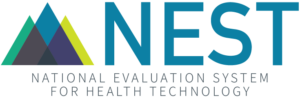Conversation with the NESTcc Governing Committee Member: Adrian Hernandez, MD, MHS
 “I believe this is the time to change the system and have a broader impact. We have to take advantage of the growth of health data every day with the rapid evolution of technology and data science to get the answers patients need more quickly.”
“I believe this is the time to change the system and have a broader impact. We have to take advantage of the growth of health data every day with the rapid evolution of technology and data science to get the answers patients need more quickly.”
Adrian Hernandez, MD, MHS
Vice Dean for Clinical Research, Duke University School of Medicine; Professor of Medicine, Cardiology, Duke University School of Medicine
As an avid Duke Basketball fan, Adrian used the following analogy to sum up his vision for how NESTcc will improve the healthcare ecosystem:
“If one player is doing all the work on the court, or in our case each stakeholder works alone, the team will never win. If you have five people playing together as a team, you have a better chance of winning. Our team is health systems, industry, patients, payers, and regulatory groups and a win for us means advancing health and bringing about the rapid evolution of device technology.”
A cardiologist by training, he was naturally interested in evidence generation for medical devices. He now wears many hats, representing researchers, clinicians, and health systems, and is interested in how we can use RWD and RWE to improve health and prevent worsening health problems.
“Every day we have people walking into our health system with questions. They’re seeking answers about what decisions they should make, whether they should get a device, and if they do, they want to know about the benefits and risks. Not only that, but they want to have answers based on people like them. With RWD and RWE we can hopefully have a better understanding of what an individual may experience in the short and long term,” he said.
Getting to that point means developing a common data language and better methods for evidence generation.
“Data generated within and across health systems are heterogeneous and serve a variety of purposes. When we look at the data, we need to understand its potential for use in evidence generation and what limits it may have. NESTcc, through its Data Quality and Methods subcommittees, will create and validate a framework that will allow us to do so,” he said.
NESTcc assembled these subcommittees in June 2018 to develop data quality and methods standards for the NESTcc Network Collaborators. Members of the subcommittees hail from FDA, academia, industry, and society registries and they all have experience with similar initiatives, including PCORnet, Sentinel, and MDEpiNet. Adrian is confident that the subcommittee members’ collective experience and expertise will ensure that the work associated with NESTcc is high quality.
Along with the subcommittees’ efforts, the NESTcc demonstration projects and test-cases will be key to demonstrating NESTcc’s role as the ecosystem’s “front-door” for RWD queries and analyses. Success for NESTcc comes when it can streamline RWD use and facilitate a reusable pathway for regulatory and clinical decisions, he said.
NESTcc’s value could extend far beyond data queries and analysis, he said. NESTcc is working to address some of what he calls the “hard issues” of collaborative networks: those of privacy, trust, and proprietary issues among participants. He believes that if NESTcc can facilitate faster and more predictable administrative processes, then it would likely be a go-to resource for the ecosystem.
“We are seeing results where we can more efficiently generate answers for the next generation of a device or device expansion in terms of population, where we can compare it to prior data and show that it’s safe and effective. There’s at least proof of concept of common data, rigorous methods, and accelerated evidence generation. The goal now is to scale and expand that across different areas,” he said.
To help NESTcc evolve and scale, he implores his fellow stakeholders from the health system, clinician, and research communities to contribute their perspectives on the challenges and barriers they see and what it would take for them to engage with NESTcc in the future.
Related Links
NESTcc Data Quality and Methods Subcommittees
Governing Committee Spotlight: Kathleen Blake, MD, MPH
Governing Committee Spotlight: Michelle McMurry-Heath, MD, PhD – Interim Chair
Governing Committee Spotlight: Vance Moore
This blog was written by Marina Damiano, Ph.D., as a contributing member of the NESTcc communications team.
